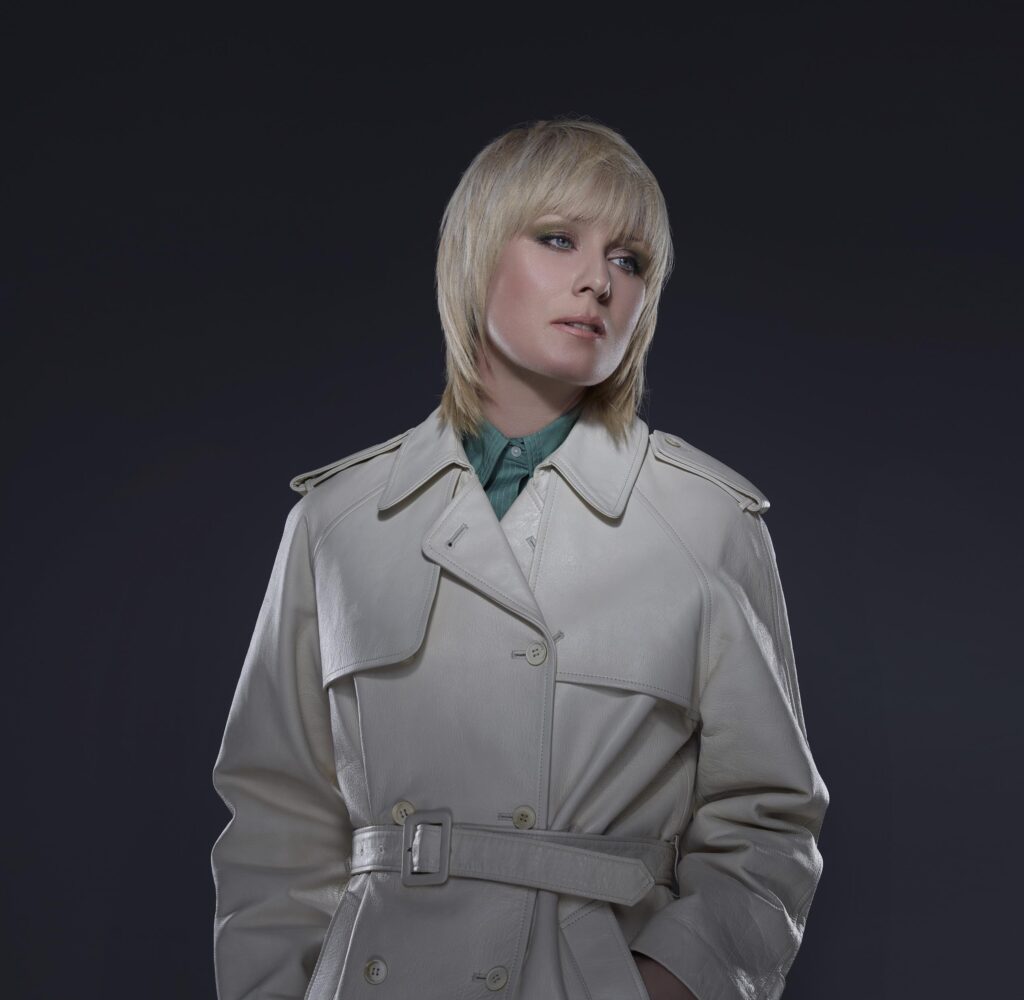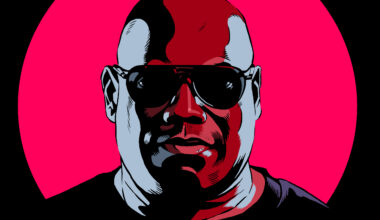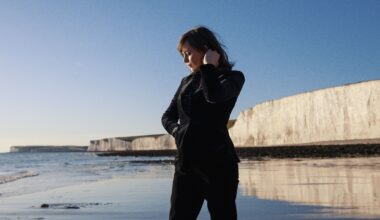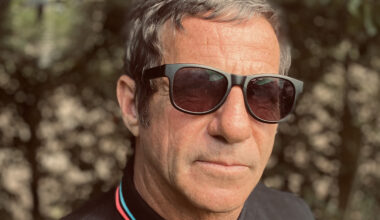To mark the release of ‘Hairless Toys’, her first album for eight years, former Moloko singer Róisín Murphy maps out her journey from then to now via the people and places she’s encountered on the way

IRELAND TO MANCHESTER…
My family moved to Manchester from Ireland. Imagine living in a small town with one butcher and one baker – no candlestick maker, but you get the picture – where everyone listened to heavy metal, and then moving to a city like Manchester, where the sky’s the limit. By the time I was 13 or 14, I was going to see bands. The first one that really changed me was Sonic Youth.
I sat on the stage for most of the gig and watched as they repeatedly picked up Kim Gordon and threw her into the audience. I was open-mouthed. The music, the excitement, the vibe between the band, the experience, it all just blew me way. The next day, I went straight out to the store with my old U2 records and exchanged them for Sonic Youth’s ‘Daydream Nation’ album. I realised that I didn’t have to be in the mainstream and that was a great liberation for me.
…MANCHESTER TO SHEFFIELD
Moving to Sheffield on my own had a big impact on my life. It was where I ended up starting Moloko with Mark Brydon after I’d hit him with that famous chat-up line, “Do you like my tight sweater? See how it fits my body!”.
The club scene in Sheffield was a big deal. There was a feeling of change in the mix of people in the clubs, not just weirdos but also kids that looked like they might have come off the football terraces. Clubbing is about more than just hedonism for me. It has an aspirational value. The fact that you’ve found yourself there means that you’re not going to be a cog in that machine after all. It’s like, “You stick me in the machine, I’ll break it!”. Suddenly every person you met in a club was a producer or in a band or a writer or an artist, and it was a real melting pot of musical tastes. It was truly creative because the boundaries were totally down.
My first record with Moloko was never about launching my career, it was the beginning of a relationship. Mark taught me a lot about writing songs, about studios, and also about having high expectations. So when I was writing a song he might say, “There are too many ‘you’s or ‘me’s in those lines”. Or when we were recording, he would stop me and say, “You didn’t quite get the note right there”. He taught me to push the levels all the time. To this day, I make sure this resonates in my work, although I also try to be experimental and have fun.
GRACE JONES
After the success of Moloko, I was nervous about becoming a solo artist, so seeing Grace Jones live was a good, powerful experience. There were no explosions, fireworks or crazy lights, just an innate drama, an understanding of “The Show” which so obviously came from her, not from some clever artistic director.
At that point, I had just discovered there was a natural performer in me. It happened by accident, when Eddie Stevens joined Moloko. Eddie altered everything when he came into our lives. Mark was a brilliant producer but he was not a natural showman, so at first it was really hard to transform a studio band into a live act. Eddie spruced everything up and showed us how we could have tremendous fun on stage.
MATTHEW HERBERT
I worked with Matthew Herbert on my first solo album, ‘Ruby Blue’, and his method and attitude in the studio really struck me. Before that, I used to sit around for hours waiting for inspiration, but he taught me that with discipline comes freedom. This still affects my practice today, perhaps even more so for my latest album, ‘Hairless Toys’.
Matthew doesn’t use sound created from synthesisers – he makes it himself. He would ask me to bring in objects from my home, use the sound of me dancing or the sound of the rain outside, and it would end up sounding like drum beats. It seems a bit academic – he’s written theses about these things and made a difference to more artists and producers than just me – but ultimately what he did was put me on a sonic pedestal. He was able to do something with whatever sound I made. He was so paternal, warm, funny and sweet. Coming out of Moloko and being pretty scared about what I was doing, Matthew turned out to be the perfect person to record that first album with.
With ‘Hairless Toys’, there’s a recurrent theme of flamboyancy and creativity as a reaction to oppression. It’s about creating a safe space from the mainstream. ‘Gone Fishing’, especially, which came from watching ‘Paris Is Burning’, a documentary film about the history of house music and black gay culture
PETER COOK & DUDLEY MOORE
Something you probably wouldn’t expect to have influenced me in the making of my new album is Peter Cook and Dudley Moore’s ‘Derek And Clive (Live)’, a record that was really important to me when I was growing up. I always want to have that level of fun. You couldn’t pick me up off the floor the first time that I heard it, I was laughing so much.
I listened to ‘Derek And Clive’ every day before going into the studio to work with Eddie Stevens on ‘Hairless Toys’. I had never worked on a solo album with Eddie before, but he and I have a great comedic relationship because we’ve known each other for so long through Moloko. We crack a lot of jokes together, and I wanted to remember that sense Peter and Dudley had of making it up as they go along. ‘Derek And Clive’ takes all your defences down, it makes you laugh at things you shouldn’t be laughing at, and you kind of end up purer. It’s cleansing.





